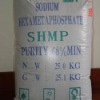- Detergent[10]
- Other Laundry Products[1]
- Chemical Reagents[1]
- Other Organic Chemical[1]
- Organic Acid[2]
- Other Inorganic Chemicals[4]
- Alkali[1]
- Other Chemicals[3]
- Bath Salt[4]
- Food Additives[1]
- Contact Person : Ms. wang Grace
- Company Name : Guangzhou Yiqi Chemical Technology Co., Ltd.
- Tel : 86-20-32371132
- Fax : 86-20-32371296
- Address : Guangdong,Guangzhou,Room 207, No. 714, East Huangpu Rd., Huangpu District
- Country/Region : China
- Zip : 510725
CUPRIC SULFATE
Uses
As a herbicide, fungicide and pesticide
Copper sulfate pentahydrate is a fungicide.[5] However, some fungi were capable to adapt to elevated levels of copper ions.[6] Mixed with lime it is called Bordeaux mixture and used to control fungus on grapes, melons, and other berries.[7] Another application is Cheshunt compound, a mixture of copper sulfate and ammonium carbonate used in horticulture to prevent damping off in seedlings. Its use as a herbicide is not agricultural, but instead for control of invasive aquatic plants and the roots of plants near pipes containing water. It is used in swimming pools as an algaecide. A dilute solution of copper sulfate is used to treat aquarium fish for parasitic infections,[8] and is also used to remove snails from aquariums. Copper ions are highly toxic to fish, so care must be taken with the dosage. Most species of algae can be controlled with very low concentrations of copper sulfate. Copper sulfate inhibits growth of bacteria such as Escherichia coli.
Analytical reagent
Several chemical tests utilize copper sulfate. It is used in Fehling's solution and Benedict's solution to test for reducing sugars, which reduce the soluble blue copper(II) sulfate to insoluble red copper(I) oxide. Copper(II) sulfate is also used in the Biuret reagent to test for proteins.
Copper sulfate is also used to test blood for anemia. The blood is tested by dropping it into a solution of copper sulfate of known specific gravity — blood which contains sufficient hemoglobin sinks rapidly due to its density, whereas blood which does not, floats or sinks less rapidly.[9]
In a flame test, its copper ions emit a deep blue-green light, much more blue than the flame test for barium.
Organic synthesis
Copper sulfate is employed in organic synthesis.[10] The anhydrous salt catalyses the transacetylation in organic synthesis.[11] The hydrated salt reacts with potassium permanganate to give an oxidant for the conversion of primary alcohols.[12]
Other uses
Can be used as a soft lewis acid, according to hard soft acid base theory, in various organic reactions, often utilized as a catalyst.
Lowering a zinc etching plate into the copper sulfate solution.
Medical
Copper sulfate was also used in the past as an emetic.[14] It is now considered too toxic for this use.[15] It is still listed as an antidote in the World Health Organization's ATC code V03.[16]
Art
In 2008, the artist Roger Hiorns filled an abandoned waterproofed council flat in London with 75,000 liters of copper sulfate solution. The solution was left to crystallize for several weeks before the flat was drained, leaving crystal-covered walls, floors and ceilings. The work is titled Seizure.[17]
Etching
Copper sulfate is also used to etch zinc plates for intaglio printmaking.[18][19]
CUPRIC SULFATE




